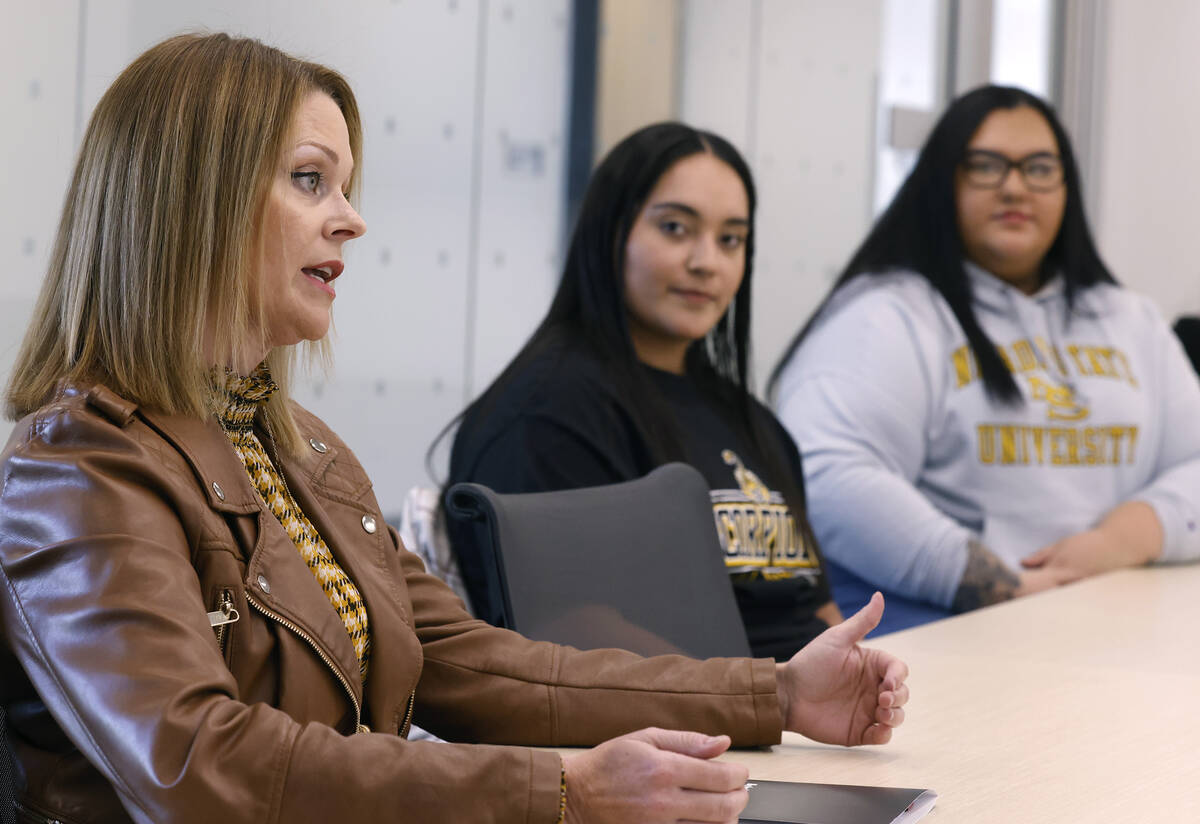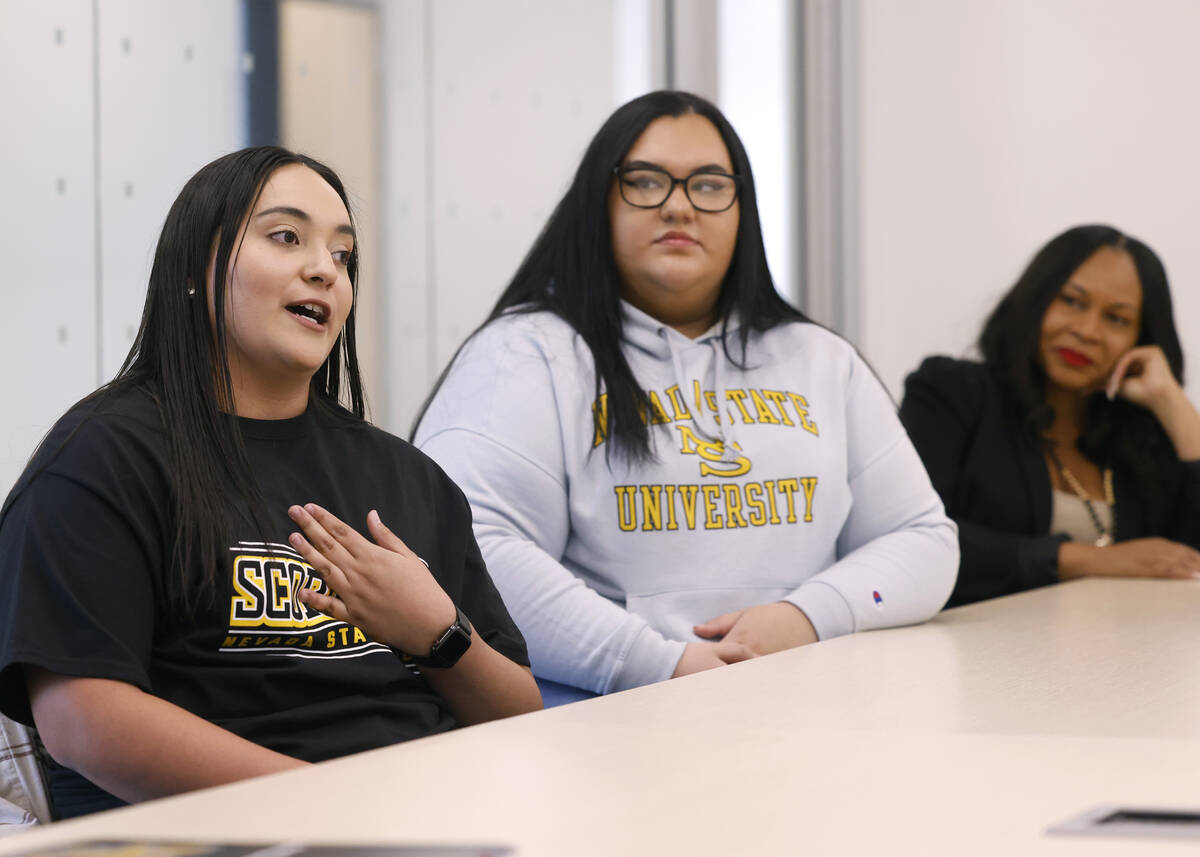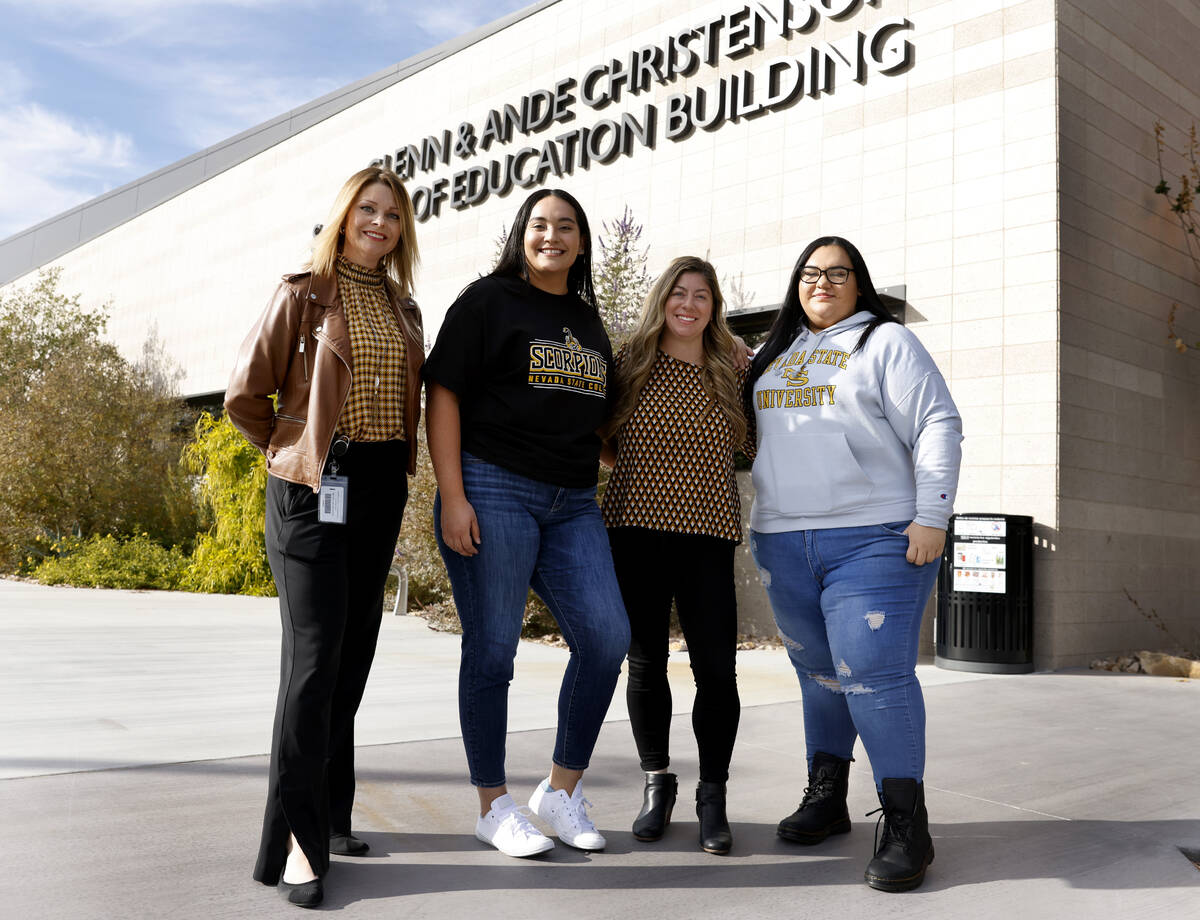‘First of its kind’: University program looks to address mental health professional shortage
Stephanie Sandoval Aleman always thought she would pursue a career in family and marriage therapy.
That is until she got an email about Nevada State University’s budding school-based mental health program.
The Active Recruitment, Training and Educator Retention to serve our Youth program — or ARTERY — appealed to Aleman because she benefited from working with the mental health professionals in her school system while growing up.
“It just really caught my attention, being someone who benefited from it, to go back and help others in that same way I got help,” said Aleman, a psychology major at NSU.
Attracting students like Aleman to the school-based mental health field is one of the primary aims of the ARTERY program. But the program and its architects also hope to address the ever-rising need for mental health professionals in schools.
The National Association of School Psychologists recommends a ratio of one school psychologist for every 500 students in preschool to 12th grade, a recommendation the state Department of Education adopted in 2020.
But Nevada is still operating at a ratio of approximately one school psychologist to 2,000 students, said ARTERY program director Katie Dockweiler.
“If we don’t have the appropriate ratios, we can’t provide the mental health services students need,” said Dockweiler, who also works as an assistant professor of school psychology at NSU. “In order to prevent big problems later, we need to be proactive and address the small problems when kids are really small.”
‘First of its kind’
With such high demand for mental health professionals in schools, the ARTERY program has found a unique way to attract more people to the field.
The program has multiple entry and exit points, allowing individuals at different education levels to learn about and enter the school mental health field.
“It’s really cool because it is the first of its kind,” Dockweiler said. “There’s not a track in the country that runs from dual-credit to undergrad to graduate programming.”
For high school students, the program offers dual-enrollment and dual-credit opportunities, allowing students to receive up to three college credits while learning more about school-based mental health.
The dual-enrollment class, which is taught by college professors but allows enrollment by high school students, is offered at NSU over the summer. The program’s first dual-credit opportunity, which is taught by a high school teacher but allows for college credits to be earned, will be offered at Northeast Career and Technical Academy next fall.
Undergraduate students like Aleman can enter the program by declaring a minor in school-based mental health, regardless of their major. The minor, which was established at the university in August of 2022, has 34 students declared as of late November.
Undergraduate students also can get licensed as a school psychologist assistant.
To go a step further, a graduate degree in school psychology can provide a steppingstone for those interested in becoming licensed psychologists. NSU offers a postgraduate program in school psychology, which is the university’s second graduate degree program.
The program doesn’t just set its eyes on those currently in school. Educators or professionals looking for a step in a different direction are also encouraged to apply to the graduate program.
Field work in Clark County
Grants from the Nevada Department of Education helped get the program off the ground, Dockweiler said. Those grants also help fund certain scholarships for students, with a requirement that the student does their field work in Clark County.
The requirement is meant to increase the number of mental health professionals in the community.
Students in the program are required to complete internships or practicums as part of their course work, with anywhere from 12 to 24 students participating in field work at any given time.
Some of those internship placements are facilitated by Clark County School District, Dockweiler said.
“We connect with them, and then they identify the school psychologist out in the field in which to pair with our students,” she said.
Students also can be paired at the Early Childhood Education Center at NSU. The center received funding in October, so it’s in its early stages, Dockweiler said.
Diversity in workforce
For Mia Calderon, a psychology major and school-based mental health minor at NSU, the program gives her an opportunity to help other students, something she said feels “great.”
“I’m learning something to not only help my siblings, but also help others, and that’s always something I wanted to do,” Calderon said.
And Calderon is just one of many students the program hopes to attract and return to the community’s workforce.
“It’s important that our children have educators of all different types that reflect what they see in their community,” Dockweiler said. “So with this pipeline program, we’re hoping to recruit from our local community and then put our professionals back in the local community.”
Contact Taylor R. Avery at TAvery@reviewjournal.com. Follow @travery98 on X.
























